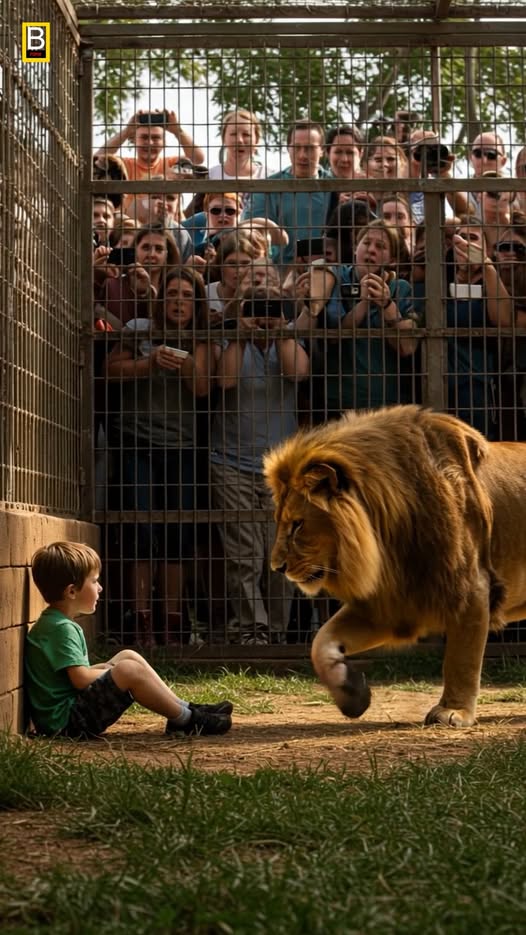He quietly lowered his head, gently grabbed his ripped bag, turned around, and walked away — without uttering a single word.
A decade later, when the truth finally came to light, all I wished for was the power to rewind time.
My name is Rajesh, and I was 36 when my wife, Meera, passed away suddenly from a stroke.
She left behind more than just me — a 12-year-old boy named Arjun.
But Arjun wasn’t my biological child.
He was Meera’s son from a previous relationship.
Meera was 26 when I married her, already carrying the scars of a broken love — a secret pregnancy she had faced alone.
“Leave.” I said coldly. “I don’t care if you live or die.”
I expected him to break down, to plead.
But he didn’t.
He simply walked away.
I felt nothing.
I sold the house and relocated.
Life went on. My business flourished. I met another woman — one with no complications, no children.
For years, Arjun drifted through my mind from time to time.
Not with worry, but curiosity.
Where was he now? Was he even alive?
But time dulls even the sharpest memories.
A 12-year-old boy, left to face the world alone — where could he have gone?
I didn’t know.
And honestly, I didn’t care.

I even convinced myself, “Maybe if he’s gone, it’s better that way.”
Ten years passed.
Then one day, I received a call from an unfamiliar number.
“Hello, Mr. Rajesh? Could you attend the grand opening of the TPA Gallery on MG Road this Saturday?
Someone is really hoping you will come.”
I was about to hang up — but the next words stopped me cold:
“Don’t you want to find out what became of Arjun?”
My heart clenched.
That name — Arjun — hadn’t crossed my mind in ten years.
I paused, then said flatly,
“I’ll come.”
The gallery was modern and crowded.
I wandered inside, feeling out of place.
The paintings were striking — oil on canvas, cold and distant, almost haunting.
The artist’s name: T.P.A.
Those initials cut deep.
“Hello, Mr. Rajesh.”
A tall, lean young man in simple clothes stood before me, his eyes unreadable.
I froze.
It was Arjun.
Gone was the fragile boy I had abandoned.
Standing before me was a composed, successful man.
Familiar, yet distant.
“You…” I stammered. “How…?”
He interrupted, his voice smooth but sharp as glass.
“I wanted you to see what my mother left behind.”
“And what you left behind.”
He led me to a canvas draped with a red cloth.
“It’s called Mother. I’ve never revealed it before.
But today, I want you to see it.”
I pulled the cloth away.
There she was: Meera.
Pale and frail, lying in a hospital bed.
She clutched a photo of the three of us from our only trip together.
My knees buckled.
Arjun’s voice remained steady.
“Before she died, she kept a journal.
She knew you didn’t love me.
But she still hoped — one day — you’d understand.
Because… I’m not some other man’s child.”
I stopped breathing.
“What…?”
“Yes. I’m your son.
She was already pregnant when you met her.
But she told you I was from someone else — to test your heart.
And later, it was too late to confess.”
“I discovered the truth in her journal, hidden away in the old attic.”
The world shattered around me.
I had rejected my own son.
And now, he stood before me — dignified, accomplished — while I had lost everything.
I had lost my son twice.
And the second loss was permanent.
I sank down into a corner of the gallery, broken.
His words echoed in my mind like knives piercing my soul.
“I’m your son.”
“She was afraid you would only stay out of obligation.”
“She chose silence… because she loved you.”
“You walked away because you feared responsibility.”
I had once thought myself noble for “accepting” a child that wasn’t mine.
But I was never truly kind. Never fair. Never a father.
When Meera died, I rejected Arjun as if he were unwanted.
Not realizing… he was my own flesh and blood.
I tried to speak.
But Arjun had already turned away.
I chased after him.
“Arjun, please wait… If I had known you were mine—”
He glanced back calmly, yet detached.
“I’m not here for apologies.
I don’t need you to claim me.
I want you to know my mother never lied.
She loved you. She stayed silent so you could choose love freely.”
I was speechless.
“I don’t hate you.
If you hadn’t pushed me away…
I might not be who I am today.”
He handed me an envelope. Inside was a copy of Meera’s journal.
In shaky handwriting, she wrote:
“If you are reading this, please forgive me.
I was scared.
I feared you’d only love me because of the child.
But Arjun is our son.
I wanted to tell you the moment I knew I was pregnant.
But you weren’t sure. And I was afraid.
I hoped that if you truly loved him, the truth wouldn’t matter.”
I wept.
Quietly.
Because I had failed as a husband. As a father.
And now… I had nothing left.
I tried to make amends, but it wasn’t easy.
In the following weeks, I reached out to Arjun.
I sent messages. He waited outside his gallery. Not seeking forgiveness, but presence.
But Arjun no longer needed me.
One day, he agreed to meet.
His voice was gentle but firm.
“You don’t have to make up for it.
I don’t blame you.
But I don’t need a father.
Because the one I had… chose not to need me.”
I nodded.
He was right.
I gave him a savings book — everything I had.
I had planned to leave it to my new partner — but after the truth came out, I ended things immediately.
“I can’t undo the past.
But if you allow me… I’ll be here.
Quietly. No labels. No demands.
Just knowing you’re doing well is enough.”
Arjun looked at me for a long moment.
Then said:
“I will accept it.
Not for money.
But because my mother believed you could be a good man.
Time — the one thing we can never recover.
I was no longer your ‘son.’
But I followed every step you took.
I quietly invested in his gallery. Introduced collectors. Shared contacts from my business days.
I couldn’t reclaim my son.
But I refused to lose him again.
Every year, on Meera’s death anniversary, I visit the temple.
Kneeling before her photo, I cry:
‘I’m sorry.’ I was selfish.
But I will spend the rest of my life trying to make things right.”
When Arjun turned 22, he was invited to join an international art exhibition.
On his personal page, he wrote just one line:
“For you, Mom. ‘I made it.’”
And below that, for the first time in ten years, he sent me a message.
“If you’re free… the exhibit opens this Saturday.”
I froze.
That single word — “Dad” — marked the end of sorrow and the beginning of new chapters.
Final thought:
Some mistakes can never be reversed.
But sincere remorse can still reach the heart.
Finding peace doesn’t require perfection, only the courage to face what once seemed unforgivable.




